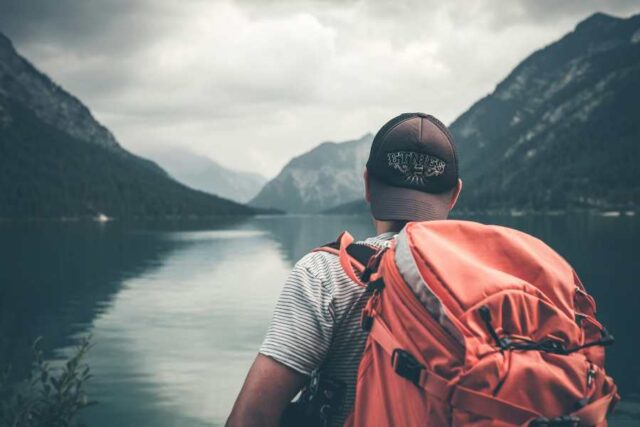Embarking on a journey, whether it’s a weekend getaway or a long-term excursion, often requires meticulous planning to ensure an enjoyable and stress-free experience. These guidelines aim to assist travelers in navigating the myriad of decisions that come with planning a trip, from selecting the perfect destination and considering budget constraints to organizing a sensible itinerary. With a well-laid plan, any trip can turn into an unforgettable journey filled with joyous moments and enriching experiences.
Selecting The Perfect Destination
Choosing the right destination for your trip is often the first step in the planning process. Consider your interests, whether they’re historical sites, nature parks, or bustling cities, to ensure the destination aligns with your expectations. It’s also worth researching the best time to visit to avoid unfavorable weather conditions or overcrowded tourist spots.
When deciding on a location, consider the cultural experiences it offers. Immersing yourself in a different culture can be one of the most rewarding aspects of traveling. Would you prefer the lively festivals of Spain, the historical richness of Rome, or the tranquil beaches of Bali?
Lastly, consider safety and accessibility. Research the destination’s general safety, health risks, and the availability of your necessities. Check if the location is accessible by your preferred mode of transportation and if it offers suitable accommodations within your budget range.
Research Local Services
After selecting a destination, it’s essential to research the local services and activities available. Will you be using public transportation or renting a car? Are there guided tours or activities that interest you? Knowing your options can help in creating a realistic budget for your trip. Whether you need a taxi from Bratislava to Schwechat or a tour guide in Bangkok, it’s best to research and book these services in advance to avoid any last-minute hassles. It’s also wise to read reviews and ask for recommendations from fellow travelers or locals to ensure the quality of service.
Furthermore, research the local customs and etiquette to avoid any cultural faux pas. In some countries, tipping is expected, while in others, it may be considered rude. Being aware of these nuances can enhance your interactions with the locals and make for a more enjoyable experience.
Considering Your Budget
Budget planning for a trip requires careful thought and realistic estimates. Start with determining how much you’re willing and able to spend. This includes costs for transportation, accommodation, meals, and activities.
Next, conduct thorough research on the cost of living in your chosen destination. Keep in mind that some places might be more expensive than others. For instance, a day in New York City might cost significantly more than a day in a rural town in Vietnam.
Lastly, always include a contingency fund in your budget. This is to cover unexpected expenses such as medical emergencies, flight cancellations, or sudden price increases. It’s always better to be prepared and have peace of mind during your trip.
Organizing A Sensible Itinerary
An effective itinerary keeps your trip organized and stress-free. Start by listing down all the places you want to visit and activities you want to do, then arrange them based on proximity to save travel time.
Ensure your itinerary is flexible. Traveling may come with unexpected circumstances such as sudden weather changes or closures. A flexible itinerary allows you to easily adjust plans without missing out on other attractions.
Remember not to cram too much into your schedule. Leave room for relaxation and spontaneous activities. After all, a vacation is a time for enjoyment, not exhaustion.
Packing The Essentials
Packing can be tricky, especially when you need to consider different climates and activities. Start by making a list of essentials, such as clothing, toiletries, medications, and travel documents. This helps ensure you don’t forget anything important.
When packing clothes, choose versatile pieces that can be mixed and matched, saving luggage space. Don’t forget to pack appropriate clothing for planned activities, such as swimwear for beach destinations or hiking boots for mountain treks.
Lastly, always pack light. Carrying heavy bags can be tiring and may hinder your ability to move around easily. Remember, you can always buy items at your destination if necessary.
Understanding Local Customs
Before traveling to a new place, it’s essential to learn about its local customs and etiquette. This not only shows respect but also helps you avoid unintentionally offensive behaviors.
Research common greetings and basic phrases in the local language. This can help you communicate better with locals and show your appreciation for their culture.
Be aware of cultural norms around dressing, dining, and social interactions. For instance, some cultures may have strict dress codes for certain locations, or unique dining etiquette that visitors are expected to follow.
Staying Safe And Healthy
Travelers should prioritize their safety and health. Research about potential health risks in your destination, such as diseases or unsanitary conditions, and take necessary precautions.
Always have a copy of your important documents such as passport, visa, and identification cards stored safely. This ensures you have proof of identity in case of loss or theft.
Maintain a balanced diet and stay hydrated. While it’s exciting to try local cuisines, remember to consume fruits, vegetables, and enough water to keep your body functioning properly.
Capturing The Moments
One of the joys of traveling is creating and capturing memories. Whether you prefer photography or journaling, find a method that allows you to remember the highlights of your trip.
Taking photographs can instantly capture a moment. It can be as simple as a beautiful sunset or as grand as a historic monument. Just remember to also live in the moment and not just view your trip through a lens.
Keeping a travel journal can be a therapeutic and reflective process. Writing about your experiences can help you appreciate them more and it serves as a personal keepsake that you can revisit in the future.
In conclusion, planning a trip can be daunting, but with these simple guidelines, you can ensure a smooth and enjoyable journey. Remember to research and prepare thoroughly, stay open-minded, and most importantly, have fun! With these tips, you can create memories that will last a lifetime. By following these guidelines, you can turn your trip into the perfect getaway. So start planning and embark on an adventure of a lifetime! Let this be just the beginning of many more trips to come.














